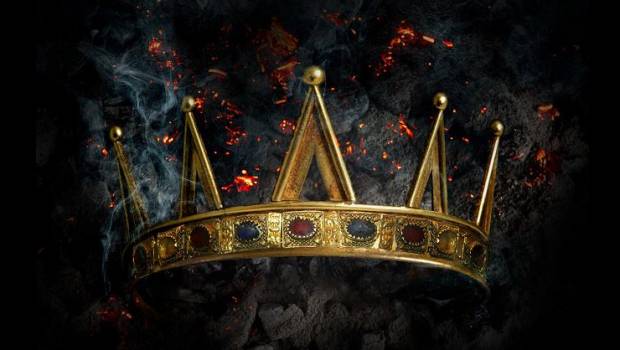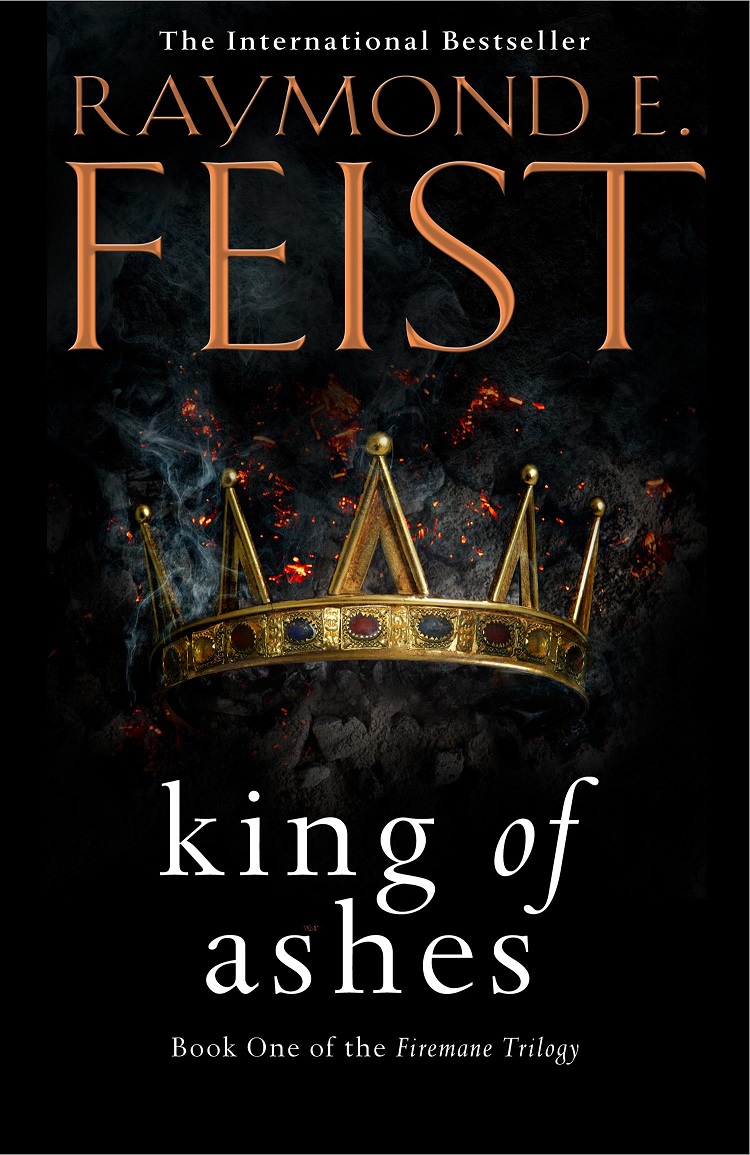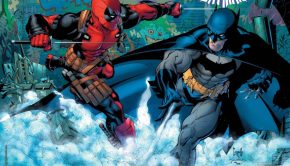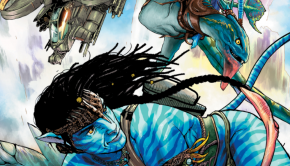A Murder of Crows and a King by Raymond E. Feist … an extract
This is an edited extract from King of Ashes by Raymond E. Feist, published by Harper Collins Voyager, 5 April 2018
A Murder of Crows and a King
Angry dark clouds hurried across the sky, foretelling more rain. A fair match for today’s mood, conceded Daylon Dumarch. The battle had ended swiftly as the betrayal had gone according to plan. The five great kingdoms of garn would never be the same; now the four great kingdoms, Daylon amended silently.
He looked around and saw carrion eaters on the wing: the vultures, kites, and sea eagles were circling and settling in for the feast. To the north, a massive murder of crows had descended on the field of corpses. Rising flocks of angry birds measured the slow progress of the baggage boys loading the dead. The carrion eaters were efficient, conceded Daylon; few bodies would go to the grave without missing eyes, lips, or other soft features.
He turned to gaze at the sea. No matter what the weather, it drew Daylon; he felt dwarfed by its eternal nature, its indifference to the tasks of men. The thought soothed him and gave him much-needed perspective after the battle. Daylon indulged in a barely audible sigh, then considered the beach below.
The rocks beneath the bluffs of the Answearie Hills had provided as rich a meal for the crabs and seabirds as the banquet for the crows and kites on the hills above them. Hundreds of men had met their death on those rocks, pushed over the edge of the cliff by the unexpected attack on their flank by men they had counted as allies but moments before.
Daylon Dumarch felt old. The Baron of Marquensas was still at the height of his power, not yet forty years from his nativity day, but he was ancient in bitterness and regret.
Thousands of men had died needlessly so that two madmen could betray a good king. While others stood by and did nothing, a balance that had existed for nearly two hundred years had been overturned. Art, music, poetry, dance, and theatre would soon follow the army of Ithrace into oblivion.
Daylon did not know exactly what plans the four surviving monarchs of the great kingdoms had for the lofty towers and flower-bedecked open plazas of the city of Ithra, but he feared for the most civilized city in the world, the capital of the Kingdom of Flames. Of the five great kingdoms of Garn, Ithrace had always produced the most artistic genius. Authors of Ithrace had penned half of the books in Daylon’s library, and Ithra was a well-known spawning ground for talented young painters, musicians, playwrights, poets, and actors, despite also providing refuge for thieves, mountebanks, whores, and every other form of unsavoury humanity imaginable.
There had always been five great kingdoms, and now that flame was ash only four remained – Sandura, Metros, Zindaros, and Ilcomen – and no man could anticipate how history would judge what had occurred this day. Daylon realised his mind was racing; he was barely able to focus on the moment, let alone the long-term political consequences of the horror surrounding him. It was as his father had said to him years ago; there are times when all one can do is stand still and breathe.
Daylon resisted letting out a long sigh of regret. Somewhere up the hill from where he stood, Steveren Langene, king of Ithrace, known to all as Firemane, lifelong friend to any man of good heart, ally of Daylon and a host of others, was being bound in iron shackles and cuffs by men he’d once called comrades, to be marched up onto the makeshift platform his brother kings had ordered constructed for this farce.
Daylon turned his mind from the coming horrors and his revulsion at his own part in today’s treachery and searched for somewhere to wash the battle from his face. He found a supply wagon overturned, its horses dead in their traces, but somehow a water barrel had conspired to remain mostly upright. Using his belt knife he cut away the waxed canvas cover and stuck his head into the cool, clean water. He drank, and came up sputtering, wiping the day’s blood and dirt from his face. He stood staring at the water as it rippled and calmed. It was the only thing Daylon could see that wasn’t covered in death; all around him, the mud of the battlefield was awash in piss, shit, and blood, pieces of what had once been brave men, and the muck covered banners of fools.
HIS LIFE HAD BEEN SCARRED by battle and death. Married twice before he was thirty-five, Daylon had deeply loved his first wife, but she died in childbirth in their third year of marriage. He didn’t care much for his current wife, but she had brought a strong alliance and a fair dowry, and despite being vapid and silly, she had a strong young body he enjoyed and she was already expecting his first child. The promise of an heir was the one bright hope in his life at present.
He forced his attention from dark thoughts and saw a familiar figure approaching.
‘My lord,’ said Rodrigo Bavangine, Baron of the Copper Hills, ‘you have survived.’
‘The day is young,’ replied Daylon, ‘and there’s still treachery in abundance. Keep hope. You may yet be able to pay court to my young widow.’
‘A black jest,’ said Rodrigo. ‘Too many good companions lie befouled in their own entrails, while men I would not piss on were they afire celebrate this day.’
‘’Tis ever thus, Rodrigo.’ Daylon studied his old friend. The Baron of the Copper Hills was a dark-haired man with startling blue eyes. At court he wore his hair long, oiled and curled, but now had it gathered up in a bright red head cloth designed to keep it under his helm in battle. He was pale of complexion, like most people from the foggy and cloud-shrouded land he ruled. Daylon had always found it odd that they had become close, as Daylon was a man of deep consideration and Rodrigo seemed to barely consider the consequences of his impulses, but he knew Rodrigo’s moods as well as he knew his own. He saw the man’s face and knew without words they were of like mind. Both men wondered if the battle would have swung the other way had they stood with Steveren rather than opposed him.
Rodrigo narrowed his pale eyes and moved closer to speak quietly, though there was no living man within a dozen paces. ‘I can tell you this one thing, Daylon: from this day forward I shall never take to my bed without the benefit of a strong drink or a young arse, most likely both, and sleep a night without haunting. This business will bring more destruction, not less as was promised.’
Daylon leaned against the frame of the wagon watching the carpenters finishing up the executioner’s platform and turned to look at his old friend.
Rodrigo recognised his expression and manner. ‘You are a man of ideals, Daylon, so you need justification. Therein lies the cause of your distress.’
‘I am a far simpler man, Rodrigo. I merely picked the side I knew would win.’ ‘And I followed you.’
‘As did others,’ said Daylon, ‘but I ordered no oathman, nor asked friend nor ally, to serve at my whim. Any could have said no.’
Rodrigo smiled, and it was a bitter look he gave to his friend. ‘Aye, Daylon, and that’s the evil genius of it. It’s a gift you have. No man in your orbit would oppose your counsel. You are too versed in the games of power for me not to heed your wisdom, even to serve foul cause.’
‘You could have opposed me and served Steveren.’
‘And find myself with them?’ he said, indicating the rotting dead in the mud.
‘There is always a choice.’
‘A fool’s choice,’ Rodrigo said softly, ‘or a dreamer’s.’ Pointing to the workers at the top of the hill, finishing up the platform, he changed the subject. ‘What is going on up there?’
‘Our victorious monarchs require some theatre,’ said Daylon sourly.’
‘I thought Lodavico closed all the theatres in Sandura?’
‘He did. After complaining that the plays were all making a jest of him. Which was occasionally true, but he lacks perspec- tive, and a sense of humour.’ Daylon added,
‘And he’s completely incapable of seeing the bitter irony in this.’
‘This theatre is entirely too macabre for my taste.’ Rodrigo passed his hand in an arc around the battlefield littered with dead. ‘Killing men in the heat of battle is one thing. Hanging criminals or beheading them is another. I can even watch heretics burn without blinking much, but this killing of women and children . . .’
‘Lodavico Sentarzi fears retribution. No Langene left alive means the King of Sandura can sleep at night.’ Daylon shrugged. ‘Or so he supposes.’ He kept his eyes fixed on the makeshift stage at the top of the hill. The workers had finished their hasty construction of the broad stage: two steps above the mud, elevated just enough for those on the hillside to be able to see, sturdy enough to support the weight of several men. Two burly servants wrestled a chopping block up the steps while a few of Lodavico’s personal guards moved between the makeshift construction and the slowly gathering crowd.
‘This business of bashing babies against walls, ugly that . . . and killing those pretty young daughters and nieces . . . that wasn’t merely a waste, it was an iniquity,’ complained Rodrigo. ‘Those Firemane girls were breathtaking, with those long necks and slender bodies, and all that red hair—’
Raymond E. Feist, King of Ashes, (HarperCollins Publishers 2018), reproduced with permission of HarperCollins Publishers Australia Pty Ltd due in bookstores in 1 April 2018







